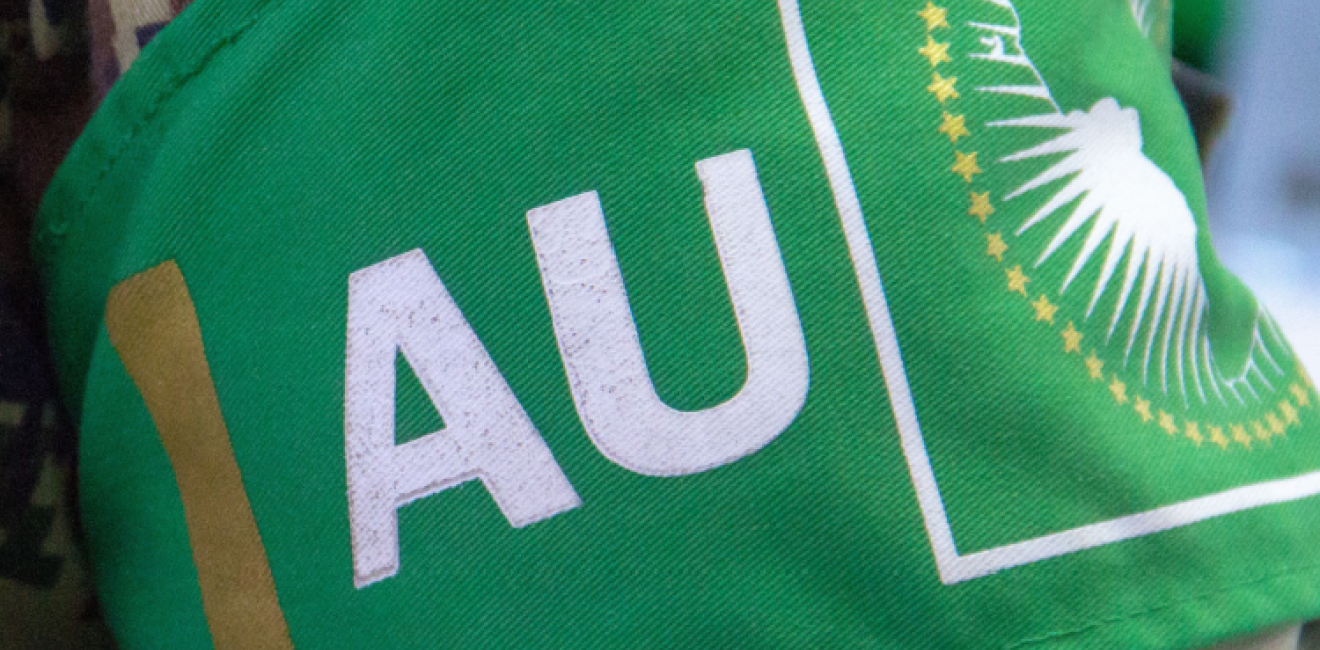
A blog of the Africa Program
On August 30, the international community witnessed an all-too-familiar event in Africa: men in military uniforms broadcasting an announcement that they had seized power, dissolved their nations government, and placed their country’s president under house arrest. This most recent forceful takeover occurred in Gabon, deposing President Ali Bongo Ondimba and ending his fourteen-year rule. Indeed, this event evokes an overwhelming sense of déjà vu: in the past three years, West and Central African countries have experienced eight successful coups, with the coup in Niger on July 23rd turning the Sahel region into “the world’s largest contiguous region of military rule.”
Given its mandate to promote democracy and good governance across the continent, the African Union (AU) quickly condemned the coup in Gabon, calling it a “flagrant violation” of the organization’s principles, and swiftly suspended the country from its institutions. Such a punishment echoed those for Niger (July 2023), Burkina Faso (January 2022), and Guinea (September 2021), the other most recent coups in Africa. Indeed, the AU hardened its stance against coups in February 2023 at the 36th AU Summit, upholding existing suspensions of four countries under military rule and reaffirming its zero-tolerance policy against “unconstitutional changes of government.”
Selective vigilance: Military versus Constitutional Coups
However, unconstitutional changes of government are not synonymous with military takeovers. The latter is far narrower than the former; in other words, while all military coups may be unconstitutional, not all unconstitutional changes are military coups. Indeed, the AU Charter prohibits five types of unconstitutional changes in government, and two of these five can refer to an incumbent civil regime’s refusal to relinquish power after free and fair elections and amending the constitution or legal instruments to infringe upon the democratic change of government. Moreover, Article 25 of the African Charter of Democracy, Elections, and Governance states that the AU can suspend and sanction any member state with an unconstitutional change of government.
Yet, for all its rhetoric and legal mandate, the AU has been inconsistent at best in combatting these so-called “constitutional coups” with the same vigor and consistency that it has applied to traditional military coups (although the latter even has its own exceptions, such as the AU’s refusal to suspend or sanction Chad after its 2021 military coup). For example, in late July 2023, voters in the Central African Republic voted on a referendum to abolish presidential term limits, allowing President Faustin Archange Touadera to exceed the country’s previous two-term limit and essentially remain in power indefinitely—all with no opposition from the AU. In July 2021, when Tunisia’s President Kais Saied suspended his country’s constitution and began ruling by decree, the AU not only remained silent but then made Tunisia a member of its Peace and Security Council (PSC) the following February.
As these “leaders for life” continue to consolidate power through constitutional manipulation and authoritarian drift, the AU must rise to the challenge of opposing military and constitutional coups.
Potential Avenues Forward for the AU
The AU’s credibility is at risk. Its silence on constitutional coups, compounded by the double standard applied in its refusal to suspend or sanction Chad after its 2021 military coup, promotes impunity, undermines the deterrent effect of any (potential or actual) punishments, and diminishes its perceived capacity to fulfil its mandate. The AU must be firm and consistent in applying coup-banning norms and its responses to those who violate them. It must treat all unconstitutionality the same, regardless of whether it manifests as a takeover of the presidential palace or machinations within a constitutional court.
One concrete step could be to encourage the African regional economic communities (RECs) that currently lack norms or standards prohibiting coups to adopt them in line with existing AU guidelines. For instance, in response to the 2021 coup in Sudan, the AU suspended Sudan’s membership from all its organs and institutions—an action that was not replicated by the Intergovernmental Authority on Development (IGAD) in Eastern Africa, the REC to which Sudan belongs. While IGAD released a public statement denouncing the coup, it did not employ punitive measures. Instead, it lobbied the AU in December 2022 to lift Sudan’s suspension, even though a civilian transition had not yet been realized.
Such at-odds positions of regional and international bodies undermine the punitive power and credibility of the AU and lessen the repercussions felt by the perpetrators of coups. The AU must ensure an alignment of standards—and responses internally as well as across the RECs by promoting the adoption and implementation of necessary instruments. The Economic Community of West African States (ECOWAS) presents an illustrative example of a decisive REC, as it has suspended and imposed sanctions on Mali, Guinea, and Burkina Faso following their coups.
Additionally, the AU should embrace a more proactive stance on preventing coups across the continent. Sanctions and suspension are reactive tools that do little to promote a robust culture of democracy and good governance. Instead, the AU must look beyond responses for when coups have already occurred and better understand and track the precursors or warning signs of unconstitutional changes in government. Indeed, the AU’s PSC has several relevant articles in its protocol that detail its “early response” mechanisms for containing and preventing crises. With this mandate, the PSC is well-positioned to surveil at-risk countries or those which seem more at risk of democratic backsliding.
Adverse developments—such as electoral fraud, constitutional manipulation, or restriction of civil society—may not only indicate an incumbent regime attempting to prolong its rule unconstitutionally but may also set the stage for the military to take power under the guise of ousting an “unlawful regime.” Indeed, constitutional coups have “often preceded military ones.”
Conclusion
Ultimately, there is no easy or one-size-fits-all solution for preventing coups. On a continent yearning for democratic progress, to remain credible and relevant the AU must rise to the challenge and unvaryingly oppose unconstitutional government changes, regardless of whether perpetrators bear military uniforms or legal loopholes.
Stephanie Lizzo works as a Junior Policy Analyst at the Organization for Economic Co-operation and Development. She recently obtained a Master’s degree in International Security with concentrations in Intelligence and African Studies from Sciences Po, Paris.
The opinions expressed on this blog are solely those of the authors. They do not reflect the views of the Wilson Center or those of Carnegie Corporation of New York. The Wilson Center’s Africa Program provides a safe space for various perspectives to be shared and discussed on critical issues of importance to both Africa and the United States.
Author

Junior Policy Analyst, the Organization for Economic Co-operation and Development (OCED).

Africa Program
The Africa Program works to address the most critical issues facing Africa and US-Africa relations, build mutually beneficial US-Africa relations, and enhance knowledge and understanding about Africa in the United States. The Program achieves its mission through in-depth research and analyses, public discussion, working groups, and briefings that bring together policymakers, practitioners, and subject matter experts to analyze and offer practical options for tackling key challenges in Africa and in US-Africa relations. Read more

Explore More in Africa Up Close
Browse Africa Up Close
The Innovative Landscape of African Sovereign Wealth Funds



